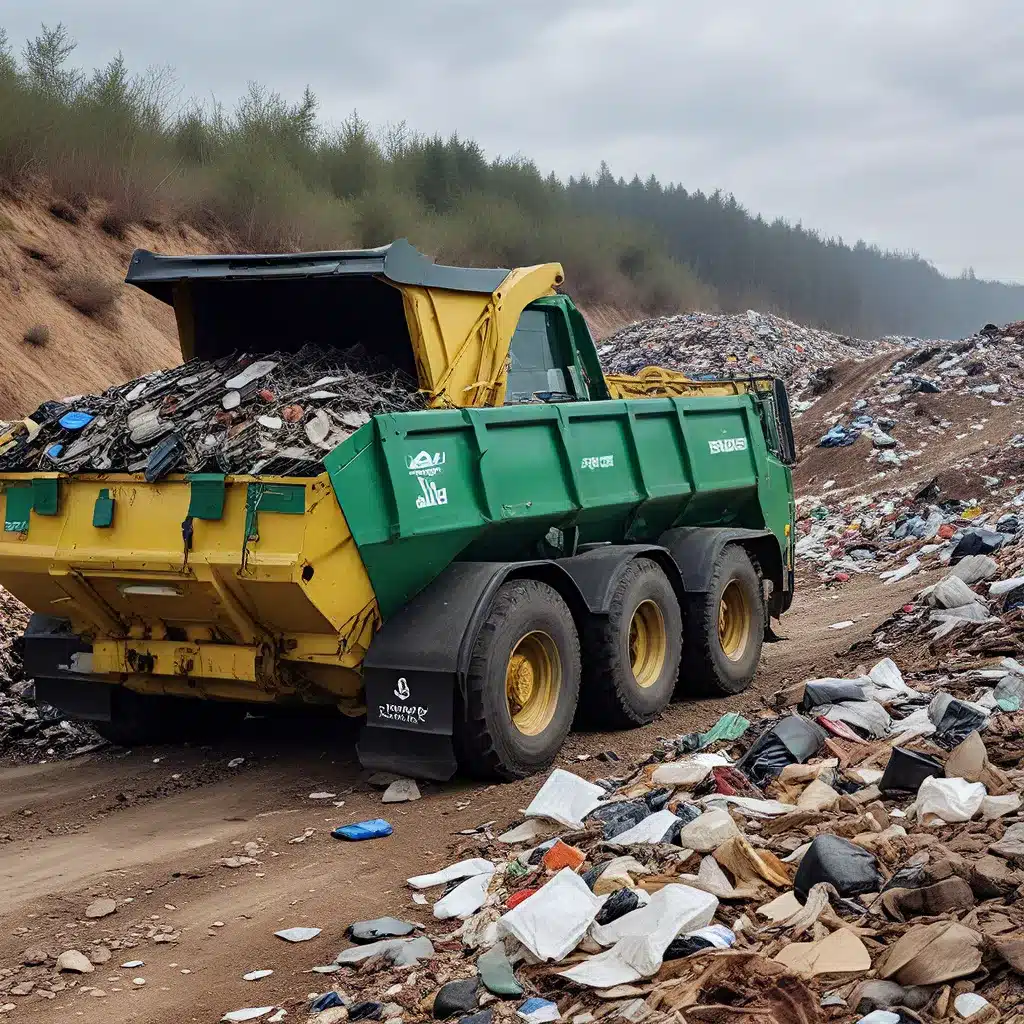
Transforming Waste Management with Artificial Intelligence
In recent years, the world has witnessed an alarming rise in waste generation, presenting formidable challenges to environmental sustainability and resource management. Conventional waste management systems are often inefficient and struggle to cope with ever-growing waste streams. However, with the emergence of Artificial Intelligence (AI) technologies, there is newfound hope in revolutionizing waste management practices to tackle these pressing issues.
AI, with its ability to process vast amounts of data and learn from patterns, offers innovative solutions to optimize waste collection, sorting, recycling, and overall waste disposal processes. This technology promises to transform the traditional linear waste management model into a circular and resource-efficient system, driving progress towards a more sustainable future.
AI-Driven Predictive Waste Management
By combining AI-based predictive analysis with smart waste management technologies, this framework revolutionizes sustainability and efficiency in waste management. It enables waste management authorities to optimize waste collection, recycling, and landfill management, leading to reduced environmental impact and enhanced resource conservation.
The integration of AI in waste management paves the way for a greener, more sustainable future where waste is viewed as a valuable resource in the circular economy paradigm. The Particle Swarm Optimization (PSO) algorithm, a highly effective and versatile optimization technique, plays a crucial role in this AI-based predictive waste management system.
Optimizing Waste Collection and Routing
AI-driven systems enable real-time data analysis from sensors and smart bins, predicting waste levels and optimizing collection routes. This dynamic approach reduces fuel consumption, minimizes carbon emissions, and enhances overall waste collection efficiency. By leveraging PSO’s ability to search for the optimal solution in a multi-dimensional space, waste management systems can be fine-tuned to achieve higher accuracy, efficiency, and sustainability.
Enhancing Waste Sorting and Recycling
Advanced AI algorithms can accurately predict and separate recyclable materials from mixed waste streams, increasing recycling rates and reducing the burden on landfills. The application of AI in recycling centers enhances material recovery and promotes a circular economy by facilitating the reuse of valuable resources.
Optimizing Landfill Management
AI-based predictive analytics can also play a crucial role in landfill management. By forecasting waste generation patterns and identifying optimal landfill allocation, this technology can help waste management authorities make informed decisions, minimize environmental impacts, and extend the lifespan of existing landfills.
Challenges and Considerations
While the integration of AI in waste management holds immense promise, it is essential to address the challenges and considerations involved in its responsible deployment. Ensuring data privacy and equitable access to these technologies are critical to foster a inclusive and sustainable waste management ecosystem.
Additionally, the success of PSO in predictive waste management relies heavily on the quality and quantity of data available. Accurate and comprehensive data collection is crucial to enable the algorithm to converge to meaningful and practical solutions.
Empowering Communities through Smart Waste Management
Community engagement is essential to the transition towards responsible waste management. By involving residents in campaigns, recycling drives, and educational initiatives, a shared commitment to eco-friendly practices can be fostered. This collaboration between waste management authorities and the community helps to develop a sustainable culture and ensures the long-term success of smart waste management initiatives.
Toward a Greener, More Resilient Future
The integration of AI and smart waste management technologies holds great promise for a cleaner, more sustainable future. By optimizing waste collection, sorting, recycling, and landfill management, this framework contributes to a circular economy, reduces environmental impact, and promotes resource conservation.
As research and technology continue to evolve, the synergy between AI, predictive analytics, and sensor-enabled smart waste management systems will play a pivotal role in revolutionizing the way we manage waste, ultimately fostering a greener and more resilient future for generations to come.
To learn more about the latest advancements in sensor networks and IoT, visit sensor-networks.org.
Key Takeaways
- Artificial Intelligence (AI) offers innovative solutions to optimize waste management processes, transforming the traditional linear model into a circular and resource-efficient system.
- Predictive analytics and Particle Swarm Optimization (PSO) play a crucial role in AI-based waste management, enabling efficient waste collection, recycling, and landfill management.
- AI-driven systems leverage sensor data and smart bins to optimize collection routes, reduce fuel consumption, and minimize carbon emissions, enhancing overall waste management efficiency.
- Advanced AI algorithms can accurately separate recyclable materials, increasing recycling rates and promoting a circular economy.
- Community engagement is essential for the successful implementation of smart waste management, fostering a sustainable culture and shared commitment to eco-friendly practices.
- The integration of AI and smart waste management technologies holds great promise for a greener, more resilient future, contributing to resource conservation and environmental sustainability.